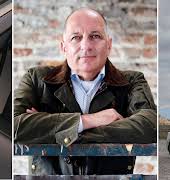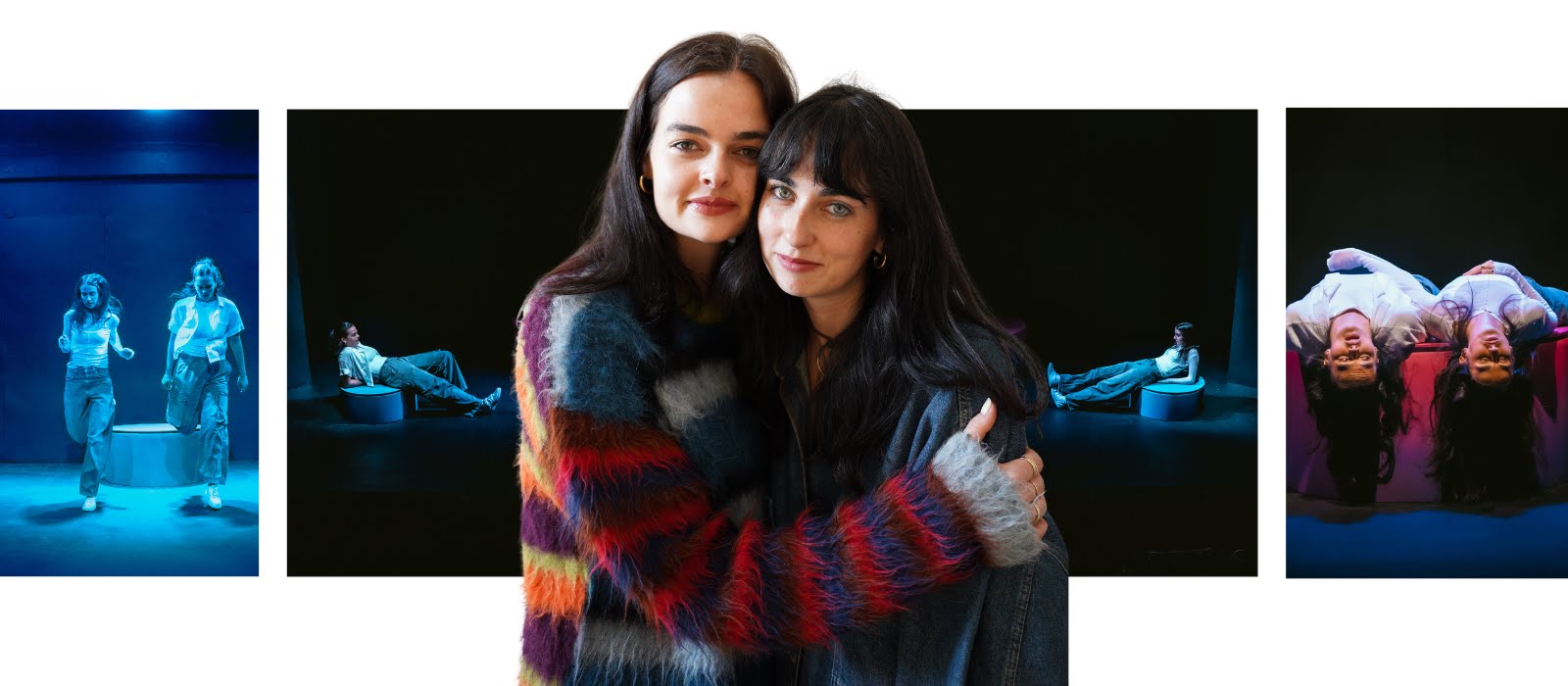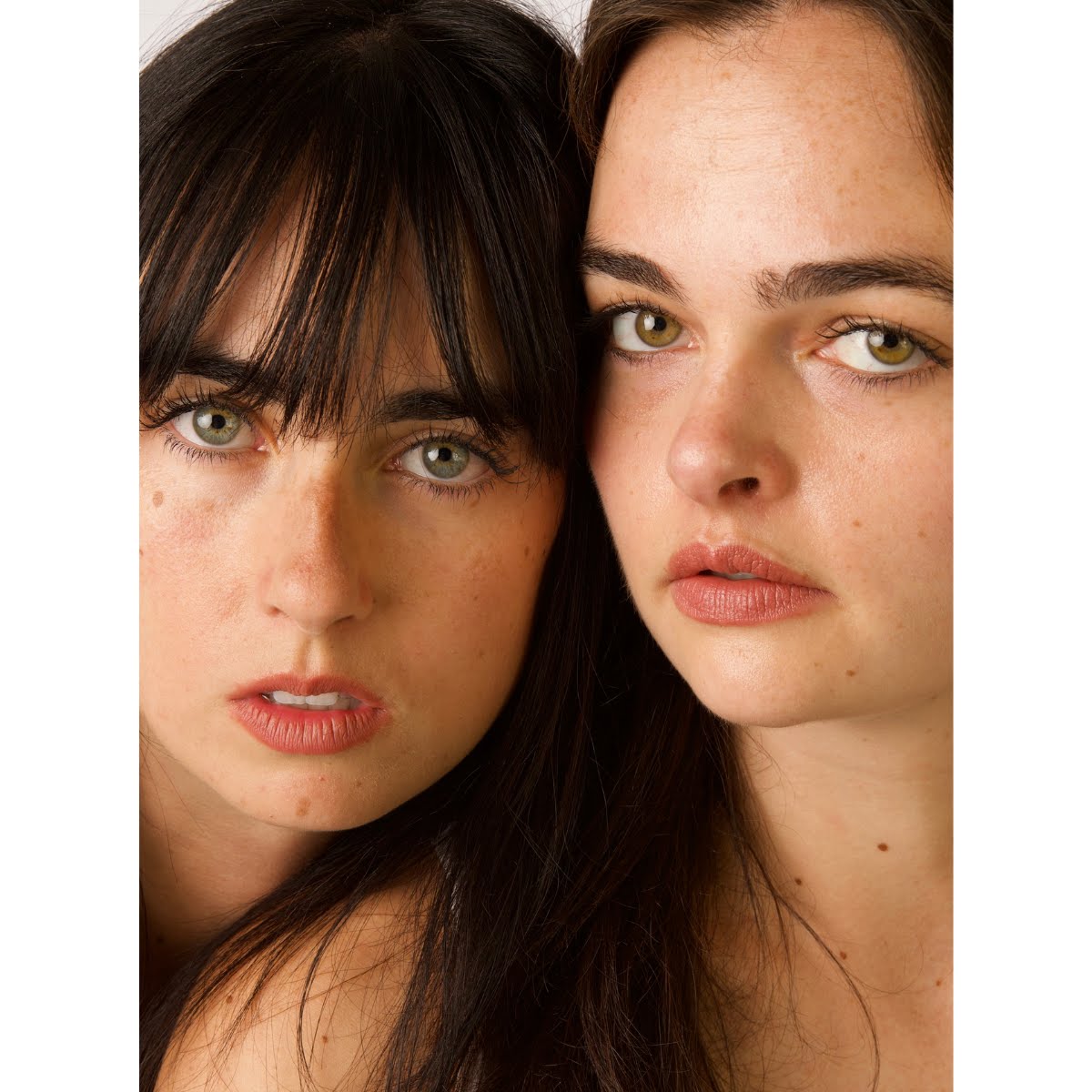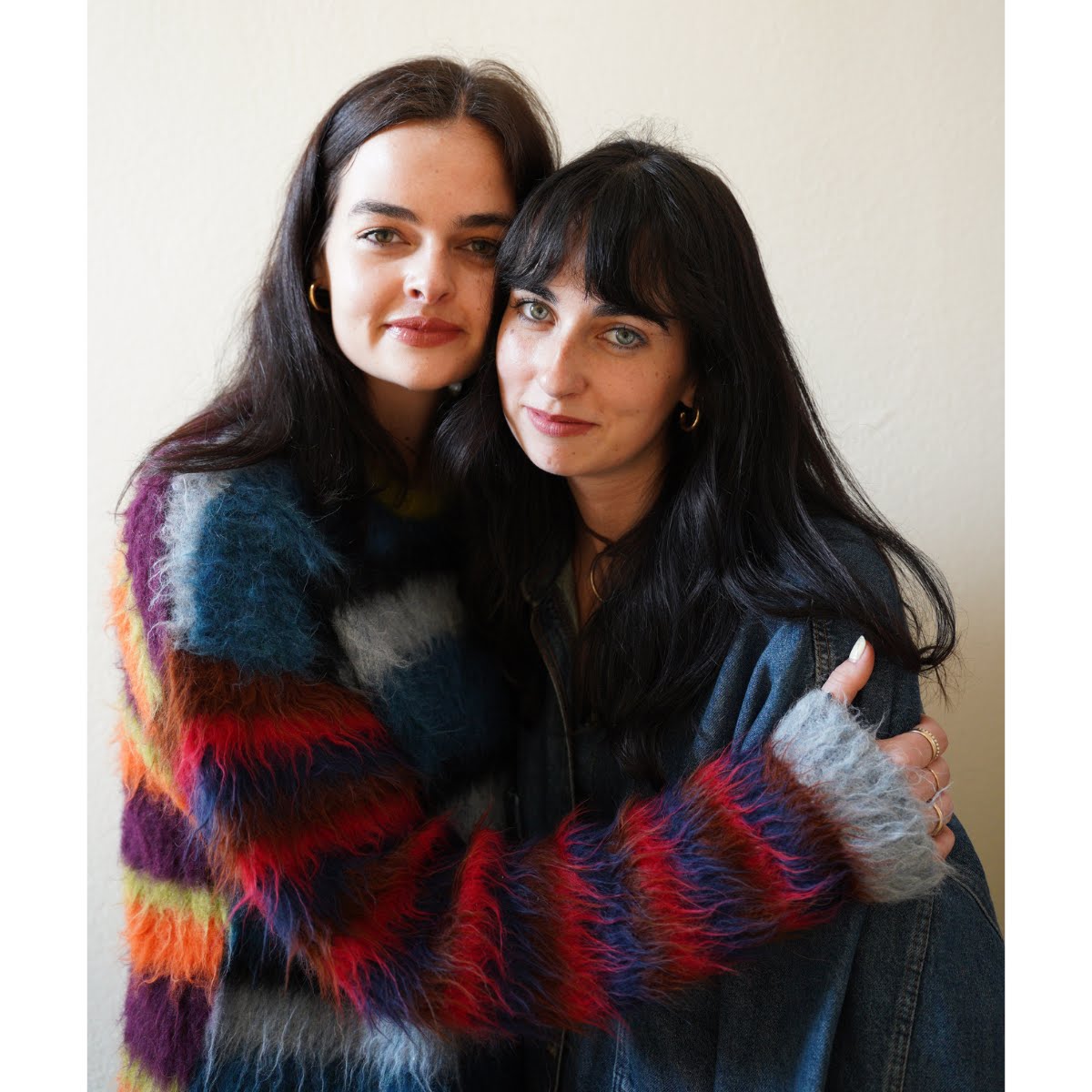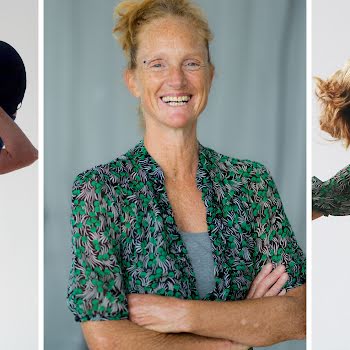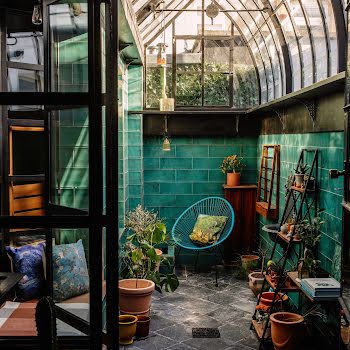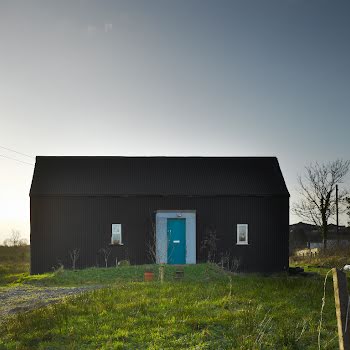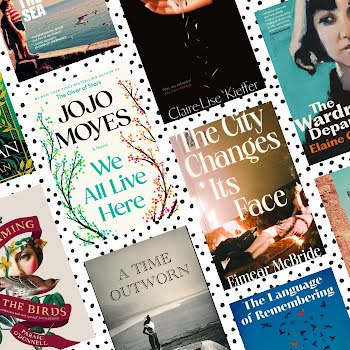Meet the sisters behind the queer coming-of-age rollercoaster that is ‘Cortisol’
Just off the back of a hugely successful run in both Dublin and Cork, Megan and Shannon Haly’s incredible production, Cortisol, is all about connection: to the theatre, to each other, and to the many different versions of ourselves.
Why is it that so many of us feel lost at sea when we’re treading through the choppy waters of our twenties? A defining decade that’s been packaged up all pretty and sold to us as the best years of our lives, how, then, are we to make peace with the fact that it isn’t always what it’s cracked up to be?
These are the questions that sisters and collaborators Megan and Shannon Haly are grappling with through their play, Cortisol.
Described as ‘an adrenaline-fueled odyssey through the messy, beautiful, and utterly exhilarating journey of crash landing into adulthood’, Cortisol is a two-woman show centring around the character of Sam as she grows from the age of eight right through to 28. In that time she experiences grief, her first love, and her first heartbreak. She parties, moves abroad and embraces her sexuality. Her childhood best friend moves to Australia, her girlfriend breaks up with her, and she feels completely adrift.
At its core, this theatrical production is an expression of loneliness.
Irish twins Megan and Shannon work in the arts as actors, producers and writers. They’ve collaborated in the past, on short films Breakfast Roll, and Dollar Baby’s, but Cortisol is their first foray into writing a script for the stage.
“We’ve been making films together for a while now, and we had been wanting to do a piece of theatre, but with me living in New York and Meg living in London, we didn’t have the opportunity to make it happen” Shannon tells me. “Then quarantine came about, and I felt so lost and confused. Megan was feeling the same way. We were going through similar phases at the same time.”
The bones of the idea felt simple: a play about feeling lost in your twenties. But digging into the grit of it all, the senselessness of it, was where the real fuel came from. “We’re so lucky now, because when you’re in your twenties, there are so many options,” Megan says. “You can move abroad, you can try your hand at different types of work, you can do anything that you have the means to do. But with that freedom of choice comes a lot of stress and confusion and overwhelm.”
There’s a repeated refrain that is said time and again over the course of the play—“you’ve got to jump if you want to play the game”—and that’s exactly what they did. Having spent the last three years writing and fine-tuning the script, Megan and Shannon took their time in bringing their idea to the stage, making sure they had the right crew around them.
Directed by Jeda de Brí and produced by Sadhbh Barrett Coakley of One Off Productions, the team involved were all women and queer women, save for Lighting Designer Dara Hoban, which is something they were extremely motivated by. “It’s so interesting to work on something where we got to see all these women working in such strong roles, absolutely killing it,” Shannon says, “it was so inspiring.”

Don’t be fooled, however, the sisters assure me that it was far from a cut-and-dry process. Having applied for Arts Council funding that they were not awarded, there were various bumps in the road along the way, but having a close confidante along for the ride helped to smooth things over. “Because a lot of the process was really hard, and one that involved navigating a new space for the first time, I couldn’t have done it if Megan wasn’t there beside me doing it too,” Shannon says.
An idea that emerges and reemerges throughout the course of the play is that of our twenties as an endless string of meeting ourselves again and again and again. So, having grown from 23 to 26 and 24 to 27 in the intervening years, from vague notion to actual reality, I wonder how Shannon and Megan’s relationship to Cortisol has evolved over the past three years.
“It’s funny because some things that I hadn’t gone through at the time of writing, I’ve gone through since,” Shannon explains. “It’s by no means a biography, but it’s largely influenced by certain things that have happened in our lives, and there are things that I was in the throes of while we were writing it that now that we’re performing it, I realise I’ve made my way out the other side of.”
Of course, there are parallels between the creators and the character of Sam, and so it was very important to them both that the story comes to a close with, as Megan explains: “the story ends when Sam is 28, back living at home, and not too sure what’s going to happen next. We really wanted the story to end on that note because the idea of figuring it all out is a false reality we’re sold about life.”
“In so many coming-of-age stories, the main character leaves and it’s great, and you never get to see the people left behind, what that impact is on friends and family, the impact that going to a new place has on yourself,” Shannon tells me. “There’s a loneliness to starting from scratch, and films and media have led us to believe that it’s this great fun process of adulthood, whereas in reality, it’s so much more complicated than that.”
There are so many intense and perplexing emotions intricately knotted together inside ourselves when we’re in this mercurial period of time, and thanks to our oh-so lucky privilege of being the first generation to grow up with social media, we’ve also got to contend with this magnifier for comparison. Given that Cortisol is all about making it through your twenties relatively unscathed, I ask Shannon and Megan for some pearls of wisdom.
“Don’t underestimate how much other people and your friends are going through the same things,” Shannon advises. “I’ve been living abroad since I was 18, and there have been so many times when I’ve been feeling homesick or lonely or confused, and it’s so easy to dwell on that alone in my room, but nine times out of ten when I’ve reached out to a friend and been honest about how I’m feeling, they’re either going through the same thing or have been through the same thing.”
“Comparison, even to good friends, can damage your self esteem and confidence,” Megan elaborates. “I have spent so much time trying to be who I thought other people wanted me to be that at 27, I only feel like I’m starting to figure out who I am now. I really want to dedicate time to figuring out what I want, start putting myself first, and being okay with letting people down. The people who are meant to be in your life will stay regardless of anything.”
Yes, on the face of it, Cortisol is a play by two women in their twenties, about being in your twenties, but it’s not strictly for people in their twenties. The reaction to their stint at Smock Alley Theatre in Dublin and Cork Arts Theatre has been incredible, with many remarking on just how seen they felt by the portrayal of being lost, while others have said that it validated every bit of queerness in them.

“We put a lot of pressure on ourselves, but by the time it came to getting up and performing it, we had done everything we could do, and we just had to pass it over to the audience for them to take something from it,” Shannon says, as Megan continues: “We said going into it that if there was one person in the audience who saw some small part of themselves in the show, we’ve done something right.
“We wanted to create a piece that felt relatable. We wrote the show with the intention of connecting more people of our generation together and to the theatre, but it’s been mad to see how older generations are connecting to it too. A lot of men in their 50s have come out crying!”
People are seeing part of themselves, catching a glimmer of who they once were, recognising family members or friends, and leaving the theatre with a better sense of understanding, for both themselves and those around them, and isn’t that exactly what good art ought to do?
Currently in the process of applying for funding to take Cortisol on a tour across the UK and America, Megan and Shannon Haly have also written a feature film version of the stage performance that they hope to develop — so you’ll still have your chance to experience the story firsthand. Watch this space.
Photography by Celeste Burdon, Simão Nogueira and Eiza Murphy.
Follow @cortisolplay on Instagram.


